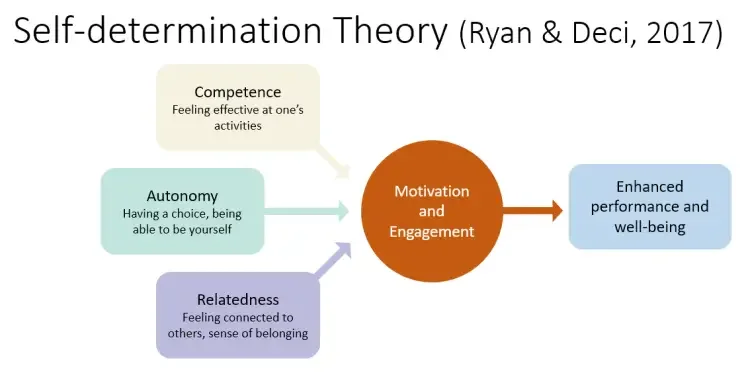Alpha and Peak Performance: The Science of Presence Under Pressure
10 mins read
By Dr. Chantale Lussier, PhD, CMPC
I. Reclaiming Alpha in Our Inner and Relational Worlds
“He who conquers himself is the mightiest warrior.” Confucius
“A woman who knows herself is a force. A woman who leads herself is a revolution.” Inspired by Lalah Delia
When we hear the word “Alpha,” our minds often jump to boardrooms, battlefields, or the spotlight of high performance: athletes in the zone, CEOs commanding attention, or personalities who dominate a room. But what if Alpha was not primarily about performance or dominance but about presence? True Alpha is the kind of energy that moves quietly yet powerfully through life. It is the inner force that allows us to show up fully in our own lives, care for ourselves and others deeply, and navigate the world with clarity, calm, courage, vitality, and connection.
In today’s era of constant distraction—from newsfeeds, social systems, and the inner chatter of our own minds—Alpha does not push or overpower. Instead, it reclaims. It roots. It reminds us that we are free and sovereign beings, capable of guiding ourselves and each other through chaos and cultivating coherence.
Alpha is not an act; it is an embodiment.
Alpha is your life force and it is a force multiplier.
II. A Brief (Re)Orientation to Alpha
Historically, “alpha” comes from ethology and primate research, originally describing the dominant member of a social group. Over time, popular culture transformed the term into a caricature of control, aggression, and ego (Mech, 1999). But deeper study and lived experience reveal a richer truth.
Among highly social animals, and in human systems, true alpha leadership is earned, not imposed. It emerges through reliability, emotional regulation, trustworthiness, and the steady practice of service to the group (Smith, Pinter Wollman, & McComb, 2022). Modern psychology mirrors this insight. Concepts like self leadership and personal agency are critical for well being, resilience, and relational depth (Neck, Houghton, & Murray, 2006; Deci & Ryan, 2000). The Alpha I am describing is an energy. It is not gendered. It is not toxic. Instead, it is an inner vitality, a frequency of being that carries a profound inner knowing:
“I belong to myself first. From that place, I can choose how I belong to others.”
III. Self Leadership: The Foundation of Inner Alpha
Self leadership is the art and practice of regulating, directing, and taking responsibility for your own inner world and outward actions. It is navigating life with yourself—not against yourself. Self Determination Theory identifies three essential psychological needs for thriving: autonomy (feeling in control of one’s choices), competence (feeling effective and capable), and relatedness (feeling connected to others) (Deci & Ryan, 2000). Alpha energy, when cultivated well, nourishes all three.
In a world that constantly pulls us in multiple directions, self leadership is both a spiritual practice and a survival skill. Alpha is not about controlling life; it is about clarity and alignment. It is about consistently returning to your values, your center, and your truth even when no one is watching. This does not mean we never experience fear, doubt, or setbacks. It means that when we fall, we know how to return: to our breath, our priorities, and our inner guidance. Our home base, our energy house. This is the quiet yet potent power of Alpha.
Article continues below
IV. Alpha in Relationships: Leading With, Not Over
Healthy Alpha energy is relational. It is not about leading over others but leading yourself within relationships. Insecure and triggered Alphas react, blame, withdraw, or over control. Healthy and intentional Alphas respond, ground, clarify, and connect. Our Alpha energy emerges from practices of emotional and energetic self-regulation, discernment, and relational accountability; practices all of which support resilience and healthier interpersonal dynamics (Gross, 2015; Bowlby, 1988).
When we embody Alpha, we are able to:
• Set boundaries without guilt
• Listen without defensiveness
• Express needs without manipulation
• Hold space for others without losing ourselves
In family dynamics, friendships, and romantic partnerships, Alpha shows up not as dominance but as devotion; not as control but coherence.
“You do not have to shrink to be loved. You do not have to dominate to be respected. You get to bring your full, sovereign self and still belong.”
Article continues below
V. Science Supports the Soul of Alpha
Alpha is often felt before it is described. It is intuitive, subtle, and powerful. Yet research increasingly demonstrates that Alpha is measurable, trainable, and observable. It is not mystical—it is scientific. Leadership studies show that qualities associated with Alpha including presence, integrity, relational attunement, and emotional regulation, predict team effectiveness and psychological safety (Fransen, Haslam, Steffens et al., 2014). Boisvert (2024) found that athlete leaders who demonstrated reliability and emotional steadiness enhanced team cohesion and performance. The loudest, most dominant voices were not always the most effective; rather, the grounded, trustworthy presence consistently produced better outcomes.
Psychology research also highlights the importance of self leadership. When autonomy, competence, and relatedness are met, people thrive (Deci & Ryan, 2000). Alpha is an embodiment of these principles: it aligns inner values with outward action, guiding our energy and attention consciously and compassionately.
Neuroscience offers additional insight. Emotional regulation, which is a cornerstone of Alpha activates the prefrontal cortex, which governs executive function, decision making, and impulse control (Gross, 2015). Practicing presence and self leadership literally strengthens the neural pathways that allow calm, clear, and responsive action under pressure.
Even in high performance settings, Alpha manifests as skillful presence rather than force. Athletes and leaders who cultivate steadiness, empathy, and trust foster environments of cooperation, motivation, and resilience (Fransen et al., 2014). Bowlby’s attachment research (1988) reinforces that secure, attuned relationships amplify this effect, allowing Alpha to flourish in both personal and social domains.
Alpha is not a stereotype of aggression or dominance; it is the synergy of mind, heart, and action. It may or may not be explicitly charismatic, but it is always deeply magnetic. An Alpha has mastered the conscious alignment of self and radiates influence without coercion.
“A good leader has a compass in their head and a magnet in their heart.” Howard G. Hendricks
Article continues below
VI. Alpha and Peak Performance: The Science of Presence Under Pressure
For athletes, artists, business leaders, entrepreneurs, and other high performers, this section brings the concept of Alpha into the arena of peak performance.
Presence Under Pressure
Peak performance is often described in sport psychology as the “flow” or “clutch” state—where action and awareness merge, and the performer becomes fully present. Research shows that leadership presence, emotional regulation, and relational trust support entry into these states, even under high stakes (Loughead, Munroe Chandler, Boisvert & Hirsch, 2021). For the high performer, Alpha is the inner foundation that enables entry into and maintenance of that flow zone.
Authentic Alpha Energy & Self Leadership
A study of coaches involved in an authentic leadership training program found statistically significant improvements in variables including authentic leadership, perceived justice, self efficacy, and collective efficacy (Soto Garcia et al., 2021). While this study focused on coaches, the findings translate to any high performer: authenticity, emotional regulation, and relational connectedness predict enhanced performance resilience and collective impact. In team contexts, athlete leaders who cultivate emotional intelligence and relational trust significantly foster higher performance and cohesion (Loughead et al., 2021). For example, research on elite football teams found that the quality of coach athlete relationships combined with transformational leadership styles predicted team resilience, a critical factor under pressure.
Article continues below
Tips for Athletes and High Performers
Regulate your inner state: Consistent practice of breath awareness, mindfulness, or centering rituals before high stakes moments anchors the nervous system and primes performance.
Cultivate emotional presence: Instead of reacting, a high performer with authentic Alpha holds space for clarity, which is linked to prefrontal activation and executive control (Gross, 2015).
Lead with integrity, not force: The most effective performers aren’t those who dominate; they’re those who embody reliability, trust, and relational attunement (Fransen et al., 2014).
Understand that performance is relational: Even solo performers (artists, doctors, military operatives) are embedded in relational systems; teams, support networks, clients. Presence and trust amplify performance across those systems.
Examples Across Domains
Athlete: A sprinter in semi finals uses a three minute centering ritual just before start. Their inner state is calm but alert, values aligned, body ready. Now, presence becomes muscle memory.
Artist: A concert pianist before opening takes a moment to ground into intention, not to prove prowess, but to serve the music and audience. Alpha emerges from connection, not ego.
Business Leader / Entrepreneur: A CEO facing a major pitch pauses, breathes, and aligns with their purpose before entering the room. Their presence communicates coherence and trust which is more persuasive than mere display.
Doctor: A surgeon in a complex operation uses a brief centering routine, communicates clearly and attuned with the team, holds presence under pressure. Alpha in action.
Article continues below
The Science in Summary
Authentic leadership, emotional regulation, relational attunement, and presence under pressure are empirically linked to high performance, resilience, and team cohesion. The high performer who embodies Alpha isn’t dominating, they are aligning. They aren’t controlling, they are present. They aren’t reacting, they are grounded. In that alignment, the highest expression of performance becomes available.
VII. Alpha in Practice: Daily Invitations
Alpha is not a title. It is a practice. You can cultivate it in your daily life by inviting presence, self leadership, and relational coherence into small, intentional actions:
Start with your morning: Begin each day with five minutes of centering. Focus on your breath, set an intention, and ask: “What would self leadership look like for me today?” This primes your nervous system to respond from clarity rather than reactivity.
Reflect with accountability: Each night, journal briefly. Ask: Where did I lead myself today? Where did I abandon myself? What can I adjust tomorrow? This reflection fosters insight and growth without judgment.
Use the power of pause: In tense or heated moments, be it with partners, colleagues, or family, pause and breathe. Alpha does not rush. It chooses with clarity and presence.
Communicate from your centre: Speak your needs, desires, and boundaries from a grounded place. Avoid reactionary responses; cultivate intentional dialogue.
Remember your role as steward, not soldier: Alpha is not about battling life. It is about stewarding your energy, body, time, heart, and relationships with discernment, clarity, direction, and care.
VIII. Final Words: Becoming the Presence You Long For
The world does not need more perfection. It needs more presence, more soul, and more clarity. Alpha is about showing up fully, responding with steadiness, moving with clarity and decisiveness, and loving without losing yourself.
It is not a costume or a command. It is an embodiment of inner authority and relational grace. It is available to you right now.
Lead yourself, with others, well.
Love yourself, and others, well.
The rest will rise to meet you.
“True leadership is not about power over others but power within ourselves.” Brené Brown
“To be yourself in a world that is constantly trying to make you something else is the greatest accomplishment.” Ralph Waldo Emerson
Article continues below
My invitation
If you are ready to awaken the Alpha in you, to discover your Inner Warrior, to develop the mental skills that support peak performance, and to deepen the mental edge that will allow you to step more fully into your excellence—then I invite you to take one small, meaningful step today.
Book a free 15-minute discovery call with me here. Let’s explore how to tailor mental-skills training to your world—athlete, artist, leader—and craft a plan to sustain your excellence. Let’s go!
References
Boisvert, M. (2024). Athlete Leadership in Sport: Meta-Analysis, Psychometric Evaluation, and Development of a Brief Questionnaire, Windsor University.
Bowlby, J. (1988). A secure base: Parent child attachment and healthy human development. Basic Books.
Deci, E. L., & Ryan, R. M. (2000). The “what” and “why” of goal pursuits: Human needs and the self determination of behavior. Psychological Inquiry, 11(4), 227 268.
Fransen, K., Haslam, S. A., Steffens, N. K., et al. (2014). Believing in “us”: Exploring leaders’ capacity to enhance team confidence and performance. Journal of Applied Sport Psychology, 26(1), 23 39.
Gross, J. J. (2015). Emotion regulation: Current status and future prospects. Psychological Inquiry, 26(1), 1 26.
Loughead, T. M., Munroe Chandler, K. J., Boisvert, M. M., & Hirsch, K. E. (2021). Athlete leadership. In E. Filho & I. Basevitch (Eds.), Sport, exercise and performance psychology: Research directions to advance the field (pp. 161 174). Oxford University Press.
Mech, L. D. (1999). Alpha status, dominance, and division of labor in wolf packs. Canadian Journal of Zoology, 77(8), 1196 1203.
Neck, C. P., Houghton, J. D., & Murray, E. L. (2006). Self leadership: A cognitive resource for entrepreneurs. Journal of Developmental Entrepreneurship, 11(1), 1 17.
Soto Garcia, D., García Herrero, J. A., Carcedo, R. J., & Sánchez García, M. (2021). The impact of an authentic sports leadership program for coaches. Frontiers in Psychology, 12, Article 701134. https://doi.org/10.3389/fpsyg.2021.701134
Smith, J. E., Pinter Wollman, N., & McComb, K. (2022). Leadership in mammalian societies: Emergent patterns and future directions. Annual Review of Ecology, Evolution, and Systematics, 53, 445 468.






